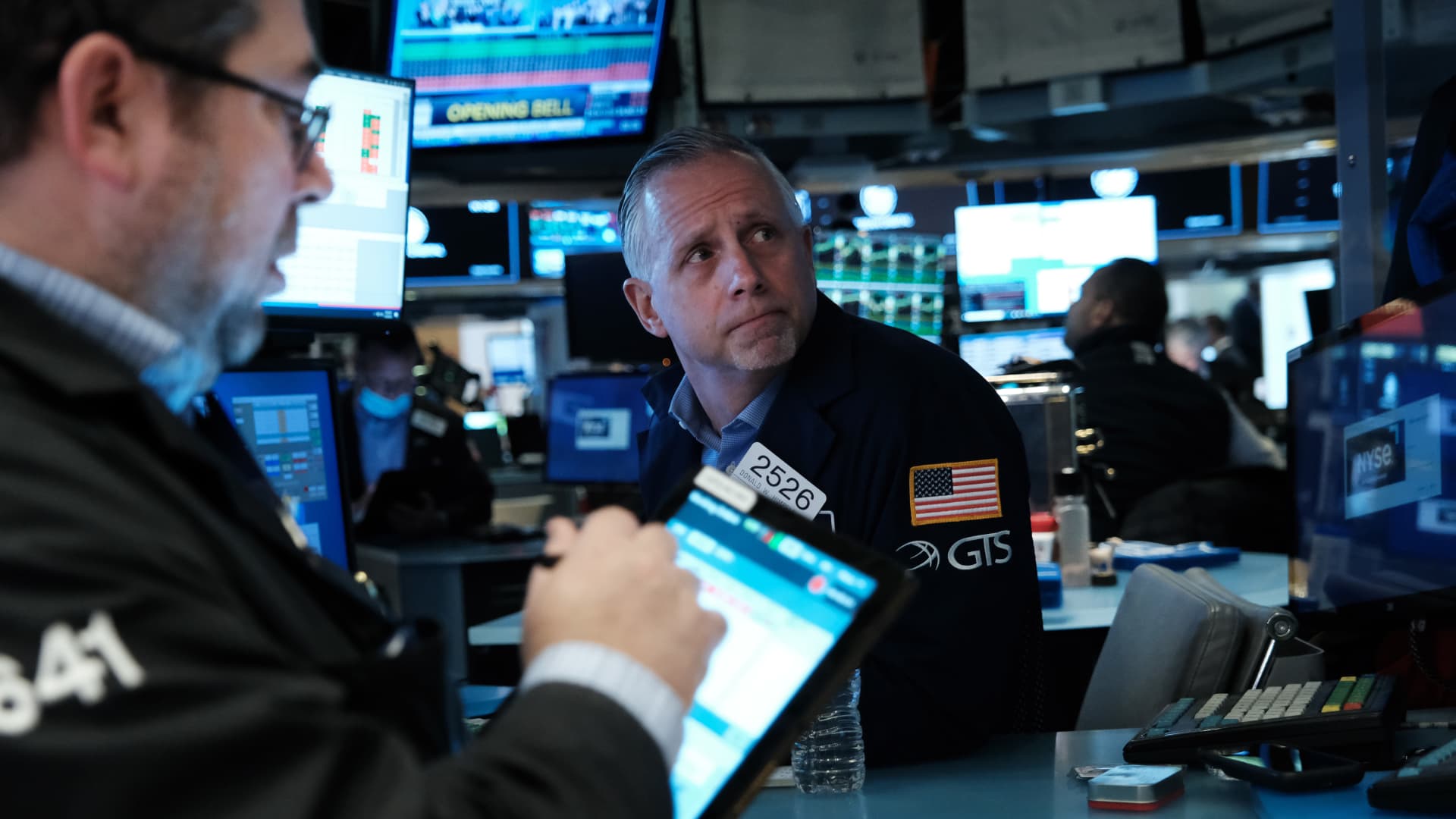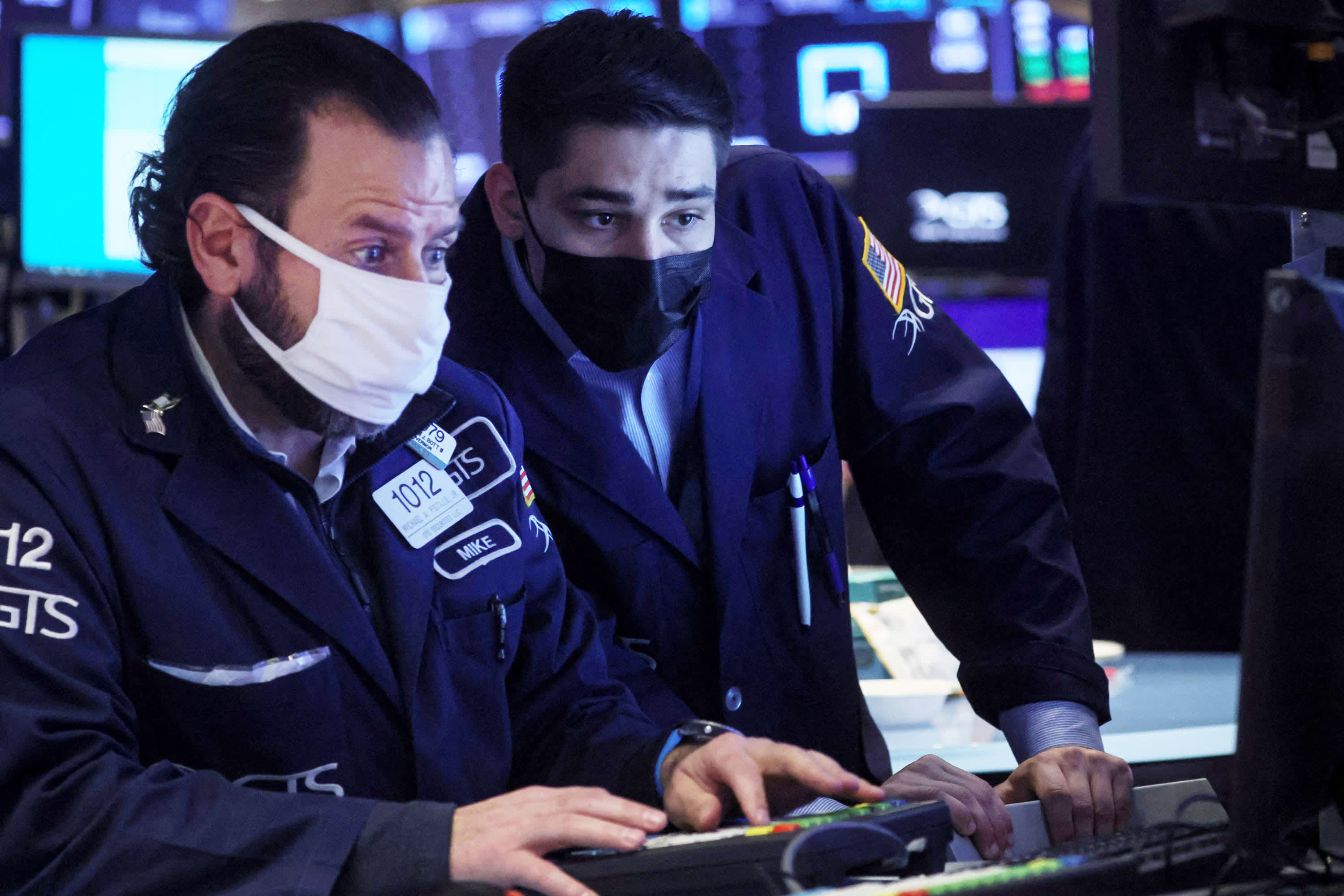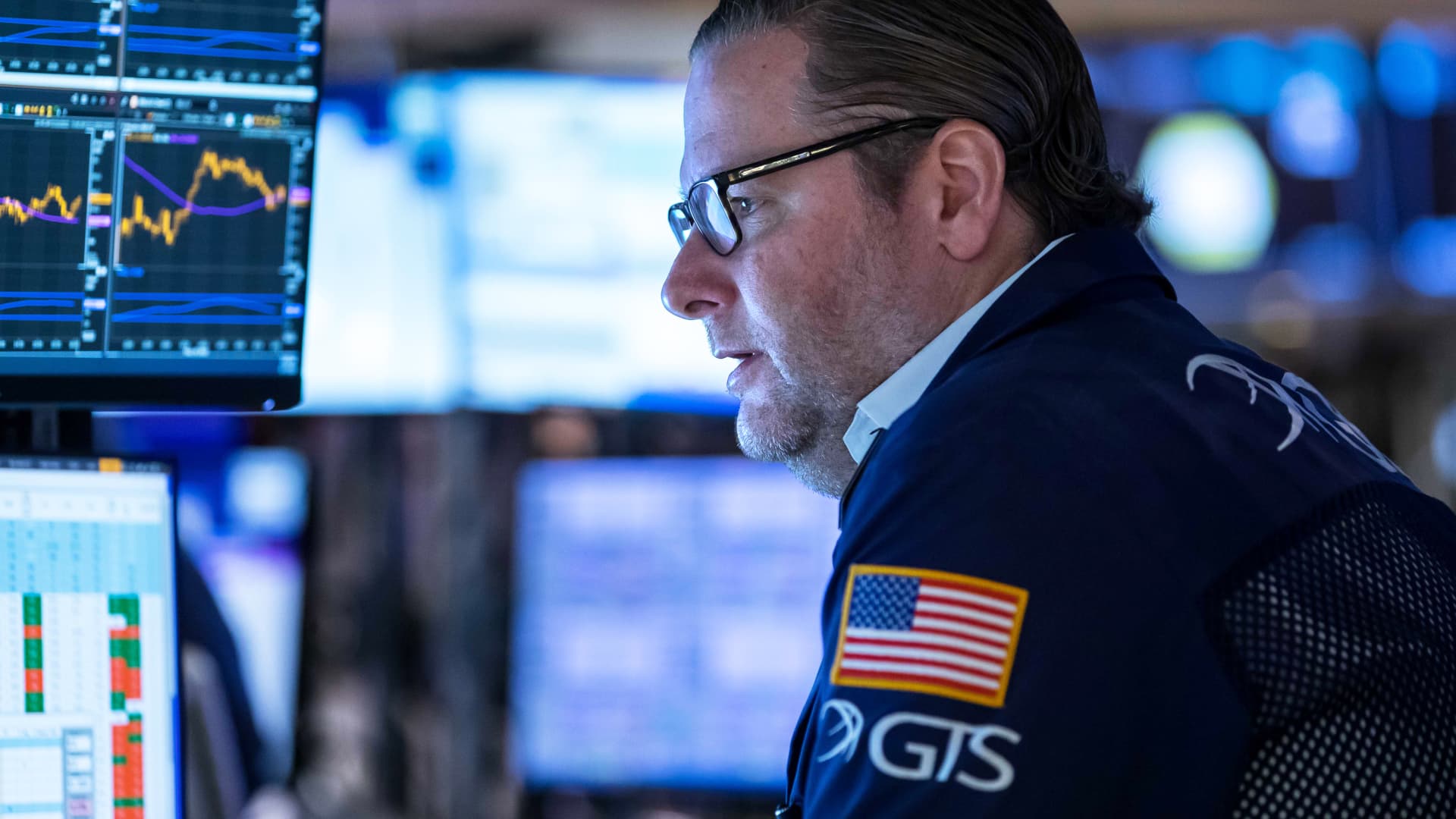Dow rises 200 points as traders monitor potential progress in Russia-Ukraine negotiations
Stocks climbed on Tuesday as Russia and Ukraine held ceasefire talks.

Stocks rose Tuesday morning, putting the major averages on track to build on the previous session's gain as traders monitored ceasefire negotiations between Russia and Ukraine.
The Dow Jones Industrial Average rose 216 points, or 0.6%. The S&P 500 gained 0.5%, while the Nasdaq Composite climbed 0.6%.
Growing hope for a Russia-Ukraine ceasefire appeared to help investor sentiment on Tuesday morning. Russian Deputy Defense Minister Alexander Fomin said Tuesday that the country will "drastically" reduce military activity near the Ukrainian capital Kyiv.
The price of U.S. benchmark West Texas Intermediate crude, which spiked during the invasion, fell more than 4% to around $101 per barrel.
To be sure, both sides have said in recent days they are not close to reaching a deal. Ahead of the negotiations in Turkey, Ukrainian Foreign Minister Dmytro Kuleba said on that "nothing is agreed upon unless everything is agreed upon." Stocks gave back some of their gains on Tuesday after U.S. Secretary of State Antony Blinken said the U.S. was focused on Russia's actions more than its words.
Auto stocks were some of the biggest gainers in morning trading, with Ford and GM each rising more than 5%. In tech, Netflix and Snap added more than 2%.
The Dow and S&P 500 are each coming off three straight positive sessions. The S&P 500 has now rebounded more than 10% since March 14.
"It's not quite lipstick on a pig but this move does take some of the sting off of what has been a weak Q1 for equities. ... The question for stocks as an asset class is whether the improvement seen in March was a bounce of impressive degree but limited duration, or the beginning of an extended rally that could carry the indexes to new highs," Willie Delwiche, investment strategist at All Star Charts, said in a note to clients.
Stock picks and investing trends from CNBC Pro:
In fixed income, the 5-year Treasury note rose above the 30-year on Monday, marking the first inversion since 2006. The shift stoked some recession fears, although economists typically watch the spread between the 2-year and 10-year rate, which remains positive.
"Our base case is that the US economy can avoid a recession, lowering the threat of a sustained downtrend in stocks. As such, investors should brace for higher rates—including potentially adding exposure to value and financial stocks which tend to outperform as central bank policy tightens—without overreacting by exiting equity markets," Mark Haefele, chief investment officer at UBS Global Wealth Management, said in a note to clients.
The 5-year yield was trading just below the 30-year on Tuesday morning.
In corporate news, shares of FedEx rose more than 3% after the company announced that founder Fred Smith would step down as CEO on June 1 and be replaced internally.
Health care giant UnitedHealth Group announced a deal to buy LHC Group for $170 per share, sending the smaller company's stock up 7%.
The conference board's consumer confidence index came in at 107.2, below the 107.5 expected, according to Dow Jones. The Job Openings and Labor Turnover Survey showed 11.3 million job openings, higher than the 11.1 million expected.

 BigThink
BigThink 
































